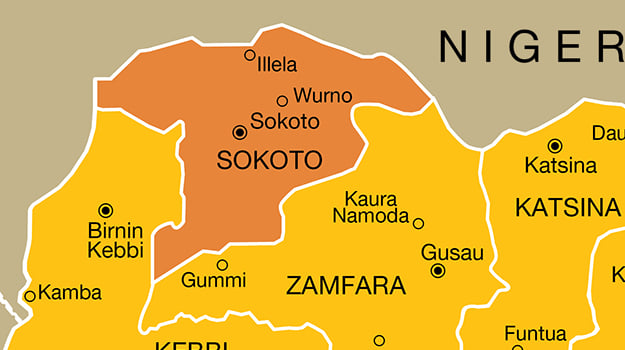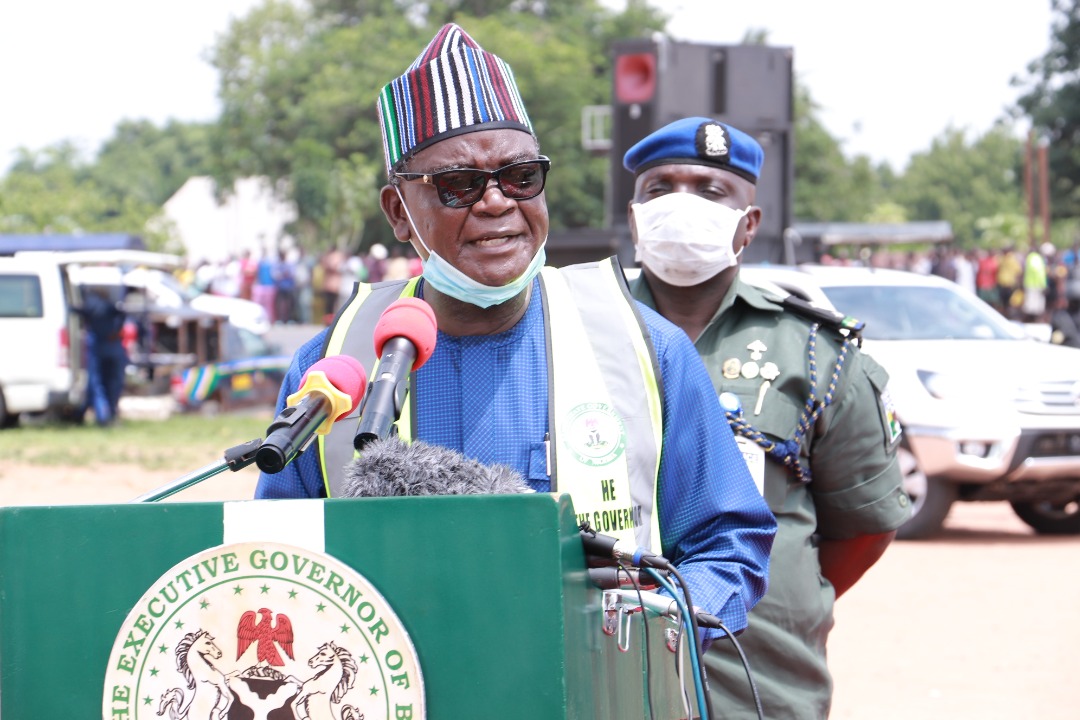Google debuts mapping system for emergency services, locations without addresses
There is a total lack of shame when the puissant political opportunists who superintend our lives claim credit for every minuscule strand of progress, appropriate credit for everything but the ugly. Soon and very soon they will claim credit for the rising and the setting of the sun except that such foolhardiness will attract the wrath of the Creator and He will strike them with the ferocity they deserve.
There is pervasive cry across the land. Vehicles are bushwhacked, content marched into the bush and molested, milked and ransomed for money; farmers are killed in their farms and their crops destroyed; whole villages are attacked, inhabitants driven out and their homes taken over by ferocious looking marauders; our forests have become homes to some gangsters, doing maximum damage to their host environments and, oftentimes, to unfortunate travelers; in fact, there was a report of a particular bizarre incident on Benin Auchi Road where the bandits staged a terrible accident and with impish bravado went from vehicle to vehicle picking choice victims in the chaotic traffic buildup.
This is not a Nollywood movie. This is reality. In all this, not much is heard from the central government that controls the security arms. Not much of a stir. But the government acts speedily when these people of a particular tribal variant, are asked to leave by the natives if they cannot operate according to the laws of the land. Pray, what do you call a man, native or alien, who wields a sophisticated weapon in your bush or highway, yet does not belong to any of the security arms!
The foregoing troubles my mind always. Of course, if you have experienced it, like I did in 2016, if you have been in their midst with about twelve people directing their guns at you while some fired in the air just to let you know that movie time is over, if only God who you couldn’t even see at the moment guaranteed your escape, then you have every reason to be angry at a government with exaggerated claim to performance.
Advertisement
Every moment you flip when that government bandies figures of achievement without determinate understanding. But when I saw the figures released by the Executive Vice Chairman (EVC) of the Nigerian Communications Commission (NCC), Prof Umar Garba Danbatta, at a briefing with Engr Festus Daudu, new Permanent Secretary of the Ministry of Communications and Digital Economy, my primary reaction which is demonstrated in this article, wasn’t anger but a need to contribute to the understanding of the communications team for the nation to experience a much better telecommunications industry.
Here are the figures: 53, 000 base transceiver stations (BTS), 47, 000 km of fibre optic cables and 208m subscribers across the mobile platforms. Juxtaposed with industry history there could actually be an infinitesimal reason to manage a smile. Except that one has been in the industry long enough to caution against any stirring hope but instead call for a focus on the big picture.
I will return to the figures but first a little attention on the Permanent Secretary, Engr Festus Daudu, who we used to simply call Engr, that is if the transient lures of office have not started to corrupt his humble being. Even before becoming a Director in the Ministry of Communications, as it was called before the days of the locusts, Engr spoke for the nation in powerful international organizations like the ITU and participated in so many decisions that were taken at high-level meetings, including the ITU Plenipotentiary Conference where far-reaching decisions are taken by the representatives of the Member States. I recall with a sense of pride that Engr did the nation very proud on each occasion.
Advertisement
So it is quite befitting that a sound technocrat of the communications industry has returned home to steer the industry at the highest level of decision making except that the industry at its current state is limping, troubled more by the arbitrariness of the Minister overseeing it. This is the first challenge for Engr, to dip into his knowledge of the sector, and school and steer the Minister to expected exactitude of decisions concerning the well-being of the telecommunications industry which is more in the news today for the wrong reasons.
Engr Daudu has a job in his hands. He spoke for the country and industry internationally. Now is the time for him to act and speak for country and industry nationally. Appealing as the figures quoted above may look, here is a little home-truth about them based on findings in the industry. There was a particular report that Government has increased the telecom base stations in the country from 30,000 to 53, 000. That is an irritating manifest display of ignorance. The government has nothing to do with the number of base stations. That is an industry contribution. The government should be concerned with providing an enabling environment, an area it is failing at the moment.
However, an industry source tried to explain that the fact there are 53, 000 base stations doesn’t necessarily mean that there are 53, 000 sites. From his explanation, the number of sites could actually be fewer, thus, dimming the number of jobs that could actually be created through the building of base stations. Explaining further, he noted that a site is the physical infrastructure while the equipment forms the base station. In this regard, there are unique base stations with the capacity to carry 2G, 3G and 4G equipment on the same structure. This, in the computation of the industry and regulator, would be counted as three base stations. Moreover, the co-location guidelines of the regulator also enable the operators to put their equipment on the same structure. Thus, one station could be counted as two, three or four, depending upon the number of operators using the site.
Instead of industry stats, my source advised that what should present more meaning to the various stakeholders, especially the regulator are: the user experience, cost of service, efficiency and coverage, among others. When each base station is matched with 1000 or 10,000 subscribers what plays out immediately is that we hardly have enough base stations in the country. While the source observed that the user experience at the moment is very depressing especially for people depending on Zoom to run their businesses as result of COVID-1 – the new normal, he counseled that this should be the time for creative infrastructure deployment by operators who should be able to use their facilities to encourage and support online studies in our higher institutions. My source was saddened by the experience of one lecturer who complained that a full hour’s lecture could be wasted while trying to make a Zoom connection. To solve this problem the networks need to build more data capacity.
The source called out the government to resolve security challenges across the country while appealing that it also makes foreign exchange transaction easier for industry operators to facilitate service expansion, the same way it is encouraging Nigerian manufacturers.
Advertisement
It is also the responsibility of government to eliminate sundry challenges like state and community issues that impede the service rollout and expansion plans of the operators. Exactly two decades after relishing a tipping point in telecommunications, time has come to advance the narrative, very positively.
Okoh Aihe writes from Abuja
Add a comment







